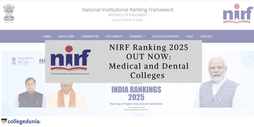
Prerona Datta Content Curator
Content Curator
A collaborative effort between scientists at IIT Mandi and the Institute for Stem Cell Science and Regenerative Medicine in Bengaluru has announced the fascinating biochemical processes that empower Dengue mosquito egG

New Delhi: A team of researchers from the Indian Institute of Technology Mandi and the Institute for Stem Cell Science and Regenerative Medicine in Bengaluru has unveiled the biochemical mechanisms that allow Dengue-causing mosquito eggs to endure challenging environments and rejuvenate when favorable conditions are restored.
Dr. Baskar Bakthavachalu, the principal investigator at IIT Mandi, elaborated that life fundamentally relies on water, yet extreme environmental conditions have compelled organisms to adapt and survive in its absence. Each of these organisms has developed its own distinctive strategy to combat water scarcity.
The comprehension of this fundamental process remains limited. In the case of mosquito eggs confronted with desiccation, they enter a modified metabolic state, significantly upregulating the production of polyamines. These polyamines play a vital role in equipping the embryos to endure the damage caused by water loss.
In addition, these eggs harness high-calorie lipids as an energy source to facilitate their development once they are rehydrated, Bakthavachalu said.
This research marks a significant stride in our battle against mosquito-borne diseases, offering hope for more effective vector control measures, said the official statement.
The official IIT Mandi statement highlighted that this research represents a notable advancement in our fight against mosquito-borne diseases, holding promise for improved vector control methods.
The joint research team conducted a series of innovative experiments involving the rearing of Aedes aegypti mosquitoes and a detailed study of their eggs. By subjecting these eggs to dehydration followed by rehydration, they identified distinct metabolic changes in the developing larvae necessary for their survival.
More Details on the Secrets of Mosquito Egg Survival
Mosquitoes, known as carriers of various diseases, lay their eggs in water, where they later hatch. Notably, the eggs of Aedes mosquitoes, responsible for diseases like Dengue and Zika, exhibit a remarkable ability to endure extended periods without water, much like plant seeds patiently awaiting germination in the absence of moisture.
Although the phenomenon was recognized, the molecular basis for their ability to tolerate desiccation and survive after rehydration remained elusive until now.
The significance of this research extends broadly. Gaining insights into these survival mechanisms lays the groundwork for pioneering strategies in mosquito control.
Popular IIT Mandi Programs & their Fees
|
Course |
Eligibility |
Link |
|---|---|---|
|
B.Tech |
10+2 with 75% + JEE |
|
|
M.Tech |
Graduation + GATE |
|
|
MBA |
Graduation + 65% with CAT |
|
|
M.Sc |
Graduation with IIT JAM |
|
|
B.Tech + M.Tech |
10+2 with 75% + JEE Main |
|
|
Ph.D |
Postgraduation |
Read More:
- IIT Mandi Masters in Robotics Admission Open; Apply till Oct 29, 2023
- IIT Mandi Held the 11th Convocation Ceremony; Distributed 565 Degrees
Subscribe to Collegedunia to get the latest educational news and updates –


.png?h=127&w=254&mode=stretch)



.png?h=127&w=254&mode=stretch)
.png?h=127&w=254&mode=stretch)
.png?h=127&w=254&mode=stretch)





.png?h=40&w=40&mode=stretch)





%20(1).png?h=40&w=40&mode=stretch)









Comments